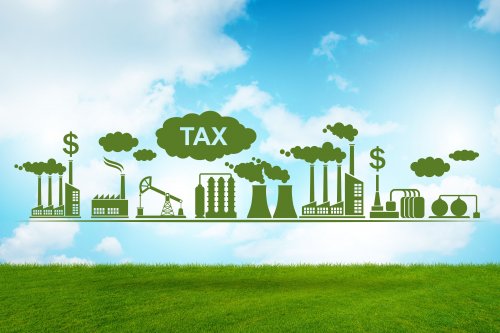MEPs have approved 3 key EU bills to combat climate change by reducing greenhouse gas emissions by at least 55% by 2030, protecting jobs and citizens.
Now the parliament is ready to start negotiations with EU governments on the final form of these laws, said European Parliament.
Bills are part of the package Fit for 55, which aims to achieve zero greenhouse gas emissions (climate neutrality) by 2050. This package is an important step towards the EU's goal of becoming independent of expensive and polluting fossil fuels from Russia long before 2030.
Reform of the emissions trading system
Parliament wants to encourage industries to further reduce emissions and invest in low-carbon technologies.
The Emissions Trading Scheme (ETS), after reform, should include:
- New ETS II for buildings and road transport - citizens excluded until 2029;
- The goal of reducing greenhouse gas emissions by 2030 should be increased from 61% to 63%;
- Free benefits will be phased out from 2027 and end by 2032;
- From 2025 it is planned to introduce a bonus-malus system ( system of bonuses to the basic tariff rate );
- The proceeds will be used exclusively for climate action in the EU and Member States.
More ambition for a new carbon leakage tool
MEPs call for wider coverage and faster implementation of CBAM to prevent carbon leakage and boost global climate ambitions, including:
- Phasing in CBAM earlier and ending free EU ETS allowances by 2032;
- Expanding the scope of organic chemicals, plastics, hydrogen and ammonia, as well as indirect emissions;
- The amount equivalent to CBAM revenue should be used from the EU budget to support the green transition in the least developed countries;
- The need for a centralized EU body CBAM.
Social Climate Fund for Combating Energy and Mobile Poverty
Parliament agrees to the creation of a Social Climate Fund (SCF) to help those most affected by energy and mobile poverty cope with rising energy transition costs.
SCF will support:
- Temporary measures of direct income support (reduction of taxes and fees on energy) to overcome rising prices for road transport and heating fuel;
- Investments in home renovations, renewable energy and the transition from private to public transport, car pooling and car exchange, and active transport (such as cycling). Measures may include fiscal incentives, vouchers, subsidies or zero-interest loans.
We will remind, European Parliament made a decision regarding the carbon duty.
As EcoPolitics reported earlier, the EU has established new corporate reporting rules in the field of sustainable development.





